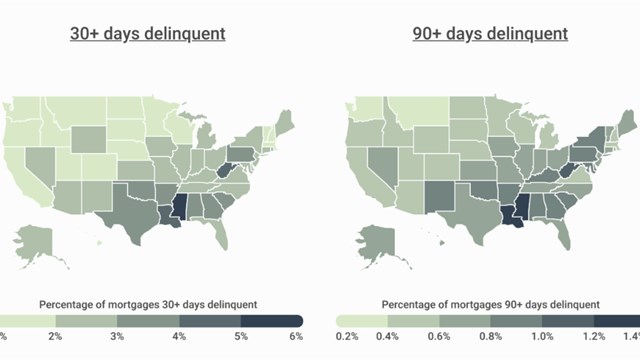Even as businesses, schools, and even entire economies shut down at the start of the coronavirus pandemic last year, the task of running residential buildings and communities never ceased. In fact, it could even be argued that as people were more or less confined to their homes for weeks and months, the decisions made by co-op, condo, and HOA boards and managers had even more impact on their communities than in the Before Times.
Now that widespread vaccine distribution and a federal administration that takes the matter seriously is beginning to flatten and even ebb transmission of the virus in many parts of the country, lawmakers (who themselves were sidelined for a time last spring) are starting to put legislation on the books relating to—or motivated by—COVID-19 and its effects on lives and livelihoods.
Virtual Governance
In New York, a change to the Business Corporation Law (BCL) went into effect just before coronavirus was declared a global pandemic. “This [change] amended section 602 of the BCL to allow for annual shareholder meetings in business corporations to be held virtually,” explains Margery Weinstein, an attorney at law firm Ganfer & Shore in Manhattan. Subsequently, in response to COVID, she continues, “executive orders further amended that you actually didn’t need to have a location specified for a meeting. So the question is: Is the legislature going to codify the executive orders going forward to dispense with the need to have an actual location [in the announcement of a meeting and] some form of in-person meeting?”
In Massachusetts, the state legislature is considering such a bill. House Bill 1416, “An act relative to electronic meetings and voting in condominiums,” addresses the need that boards and owners of condominium units have had over the past year-plus to conduct community business electronically and/or virtually. Matthew Gaines of Braintree, Massachusetts-based law firm Marcus, Errico, Emmer, and Brooks, P.C. indicates that most governing documents of housing associations were drafted decades ago and refer only to in-person meetings of boards and unit owners.
“There’s some question about all these Zoom meetings that boards and unit owners have been having for the last year,” says Gaines. “Are they really valid? So because of that, [the New England chapter of the Community Associations Institute (CAI)] proposed this legislation that basically says, notwithstanding any provisions in your documents that may require in-person meetings, the association is permitted to have Zoom or any type of remote electronic board meetings, electronic unit owner meetings, and electronic voting.” Partially in response to adaptations made during COVID, and partially to modernize governing documents to reflect current realities, this bill “is trying to bring the condominium world here in Massachusetts into the 21st century,” Gaines says.
Nevada is also considering a bill that would provide for electronic voting in homeowners association elections. Assembly Bill 313 has gone through amendments and passed out of committee, advises certified property manager Barbara Holland in her weekly column in the Las Vegas Review-Journal. “If passed,” she says, “this will be an interesting regulation and potentially a difficult regulation as associations will need to protect the integrity of the voting.”
COVID Immunity
In addition to the Herculean effort to achieve COVID immunity through mass vaccination, another type of COVID immunity is being sought by state legislatures in the interest of community association leaders: immunity from liability for COVID-related claims.
In the New Jersey Assembly, according to community association lawyers from the Morristown office of law firm Becker & Poliakoff, there is pending legislation in the Garden State “that would, essentially, offer community associations immunity from legal action regarding any illness, injury, or death from or related to exposure to or transmission of COVID-19 on the premises of a planned real estate development.”
This bill, supported by CAI New Jersey’s Legislative Action Committee, arose from the actions—not all of them popular—that boards and property managers had to take to mitigate the spread of coronavirus on their properties and through their communities. Closure of amenities, mandatory masking and social-distancing rules, suspension of community activities, and strict policies related to elevator capacity, outside guests, and renovations were some of the measures instituted to slow or stop the viral spread in housing communities. But these actions were met with resistance from residents in some cases, and even the threat of litigation. Equally concerned about being sued if they did not enact such measures and a resident became infected on the property, boards and managers found themselves in very tricky legal waters.
So far, as CooperatorNews has previously reported, insurers are not covering for claims related to COVID, so even with Directors & Officers (D&O) insurance, boards and board members can be held financially responsible in the event that a resident, visitor, or staff member succeeds on an action against them claiming negligence or breach of fiduciary duty. They would be responsible for their own legal defense as well. “There are always liability concerns,” says Scott Piekarsky, an attorney with Phillips Nizer, a law firm with offices in Manhattan and New Jersey. “People may get injured due to the pandemic through infection. … A condominium association is a business, and boards have a fiduciary duty to protect the members. We are hearing now that if someone gets COVID and sues the association, insurance will not defend or indemnify. No defense and no payout, until this is adjudicated.”
Passage of the COVID Immunity Bill (A4979/S3584) would alleviate these concerns, and perhaps encourage boards to reopen amenities sooner, advocates argue.
Florida condo and HOA leaders might have less to worry about in this regard now, says Donna DiMaggio Berger, Board Certified Specialist in condominium and planned development law and shareholder at Becker’s Fort Lauderdale office. According to her, SB72, which Governor Ron DeSantis signed into law on March 29, “[Provides] civil immunity to business entities, not-for-profit corporations, hospitals, nursing homes, government entities, schools, and churches for COVID-19 related claims as long as the alleged negligence doesn’t involve gross negligence or intentional misconduct.”
Florida condominiums, cooperatives, and homeowners’ associations are classified as business entities that this bill protects. “However,” continues Berger, “the new law is not a protective blanket under which all associations can take shelter regardless of how they handled this crisis. … The association boards who took steps (and continue to take steps) to comply with local, state, and federal guidelines should be able to rely upon this new law for protection.”
Berger stresses that the law does not provide or imply license for community leaders to completely abandon health and safety protocols in attempts to get back to “normal,” especially as the majority of Floridians remain unvaccinated and viral variants continue to spread. “It is not only reasonable, but prudent for boards to continue to exercise due caution when operating and opening common amenities and enforcing COVID-19 safety protocols,” she concludes.
Planning for the Next Disaster
Although not necessarily a direct response to the pandemic, Rep. Jerry Nadler (D-NY) has committed to introducing federal disaster assistance legislation this year in the U.S. House of Representatives, according to CAI. The Disaster Assistance Equity Act (DAEA), as the legislation is called, would streamline the approval process for the Federal Emergency Management Agency (FEMA) to reimburse local governments for the cost of removing debris from community association roads, and would allow condominiums and housing cooperatives to use FEMA disaster assistance payments to fund critical repairs for common elements.
One thing this year has taught us is the importance of acting quickly, intentionally, and informedly when a disaster threatens the health and safety of our homes and our neighbors. Helping community associations plan for disasters and improving recovery coordination with local emergency management officials will go a long way toward resilience, restoration, and recovery in the face of ever increasing threats from natural and biological disasters.










2 Comments
Leave a Comment